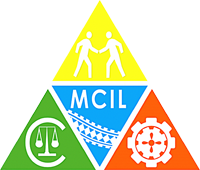Occupational Safety and Health

Occupational Safety & Health is concerned with promoting the highest degree of protection for the safety, health and welfare of workers in their occupations. OSH is also designed to protect other members of the public who are impacted by the workplace environment.
The International Labour Organization (ILO) and the World Health Organization (WHO) have shared a common definition of occupational health since 1950.
Why is OSH so Important?
The reasons for implementing Occupational Safety & Health laws and standards are many. The major factors include:
- The basic principle that a person should not have to risk their lives or risk injury at their place of employment
- The establishment of solid OSH laws saves both the government and businesses from costs resulting from workplace injury; such as compensation payments, medical costs, loss of production, legal costs, damages, and loss of consumer trust
- Enforcing OSH requirements by application of the law will result in most employers adopting standards in their workplace which they may not otherwise have done
What are the main objectives of OSH?
- Enhance the productivity, morale and welfare of people at work, and of the people affected by work activity
- Secure the safety, health and welfare of employees at their places of work
- Protecting persons at or near places of work, and protecting the environment, from risks to safety arising out of activities of employees at work
Duties and Responsibilities of OSH Inspectors
OSH inspectors are required to conduct inspections to guarantee that employers are complying with Occupational Safety and Health laws. The following are duties and responsibilities of OSH inspectors:
- Conduct routine inspections to ensure the safety and health of employees at their workplaces
- Receive, Register and Investigate work accidents and advise on preventative measures
- Conduct OSH training and workshops for both employers and employees
- Take legal actions to enforce compliance
Duties and Responsibilities of Employers
Employers are responsible for the general wellbeing of their employees and are therefore required to provide a safe and healthy working environment. As such, it is the duty and responsibility of all employers to:
- Protect the safety, health and welfare of employees at the places of employment
- Maintain a safe and healthy working environment
- Provide, maintain and make accessible to employees protective clothing and equipment to avoid injury or harm to their health
- Keep and maintain a Register of every accident that causes death, serious injury or illness to any person, whether employed in the workplace, or lawfully on the premises
- Notify the Ministry within 48 hours of any accident that causes death, serious injury or illness
Duties of Employees
Employees have a duty of care and responsibility for their own wellbeing, and the wellbeing of those around them, and as such have certain duties to fulfill. These duties include:
- Take reasonable care to protect his/her safety and health at work, fellows workers, and persons in the vicinity
- Use protective clothing and equipment which has been supplied for the purpose intended
- Not to use the protective clothing and equipment for any purpose other than that for which it was provided
Mandates
The Mandates for Occupational Safety & Health are listed below.
Click on the title to view the complete Act on the Samoa Parliament website.
Forms
Employers Written Notice of Accident Form 8
Occupational, Safety and Health Brochure


